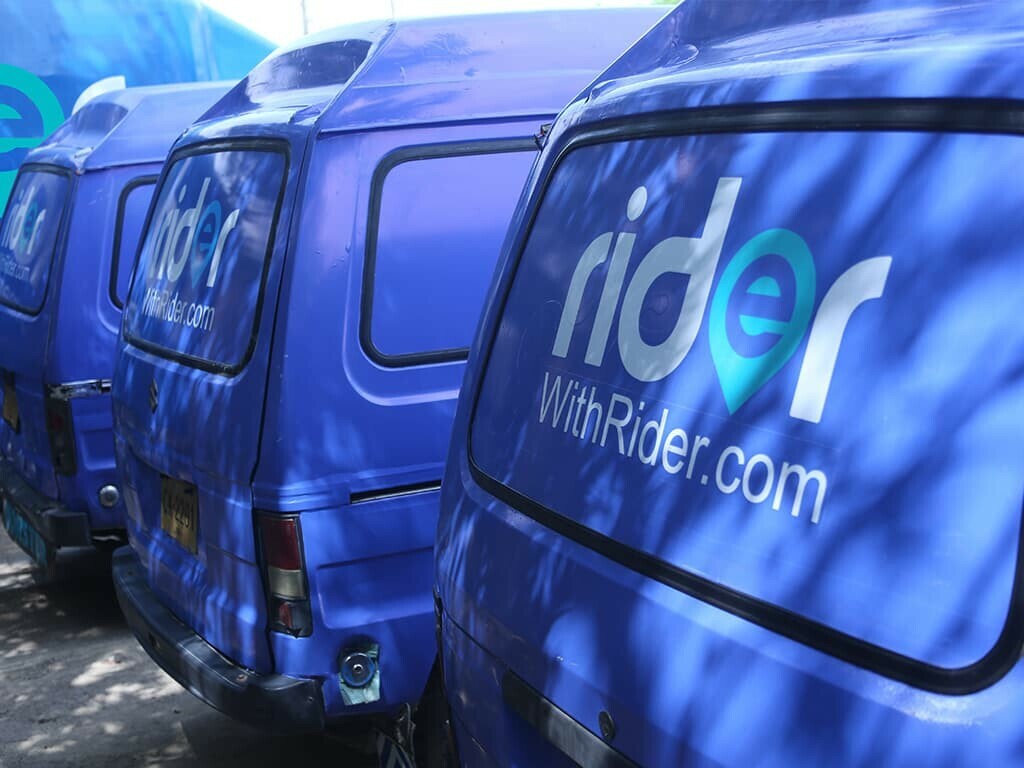Correction Needed in Pakistan Startups’ Business Model: Rider SEO Salman Allana
“The discount model is that you sell a product that costs Rs100 for Rs60 and then claim that ‘I have huge hockey stick growth’,” Allana told Business Recorder in a recent interview. “Obviously, you will have hockey stick growth, since you are selling things cheaper than the cost.”
He said that there is a need for correction in the startup ecosystem. His statement comes at a time when Pakistan’s startups have attracted record funding, but failed to sustain gains and either rolled back or shut down operations due to a number of factors.
Rider itself has raised seed funding of $5.4 million so far.
“Correction is needed in terms of the expansion strategy. Some times you do need the discount model.
“But it doesn’t work if you are solving a real problem. Why would you need to discount it? It means that you are not confident that your product has solved a problem,” he said.
Startups and e-commerce in the backdrop of Pakistan’s economic crisis
Talking about Pakistan’s startup ecosystem under the present economic crisis, Allana said that when things are going well, everyone shouts.
“Every startup can be seen telling their success stories those days but when things become tough, then only the strong companies perform and emerge from such circumstances,” he said.
Trucking startup Trella to cease operations in Pakistan: report
Allana said e-commerce has been flourishing despite the country’s economy going through one of its worst phases.
“Online sales have increased and we are seeing definite growth.”
According to the US government trade website, Pakistan was the 46th largest market for ecommerce with a revenue of $4.2 billion in 2021.
Rider, which started its operations in 2020, has seen 150% compound annual growth in revenue, Allana said.
“It was 185% in the year 2022 (calendar year),” he said.
Modern facility for tech startups launched
Most of the online sellers are in the fashion retail category. It’s generally all locally produced.
“E-commerce is relatively protected from the import ban in Pakistan,” Allana said.
“Consumer electronics took the biggest hit in Pakistan but it has a very small pie in the e-commerce space. Although it is 80% of e-commerce in the west, fashion retail enjoys 80% share in Pakistan. There is a flipped pyramid here.
“There was an initial hit on cosmetics but our entrepreneurs quickly responded and now we see a lot of local substitutes,” he said.
Stitched and unstitched are the two most important categories in clothes as well as western wear.
“Shoe sales picked up from June 2022. Since then, the shoe category has gotten really large. We have 15 customers (shoe sellers) and footwear is 10-15% of our overall business.”
Meanwhile, talking about the struggling startups, he said that all cannot be blamed on the economy.
“Economy is the economy, you can’t always criticise it. There are countries that have worse economies than Pakistan but big funding rounds have taken place there. If you look at South America, big investors have gone there despite hyperinflation. You build a good business and investors will come regardless of the country.”
However, he agreed that funds were drying up for startups but this is not just limited to Pakistan.
“Funding environment for startups is directly affected by interest rates. The year 2021 was good because interest rates were near zero in the international context. Startups are one of the riskiest assets and frontier markets are the tail-end of that risk. Pakistan is a frontier or early emerging market. So there is little to be surprised about when it comes to low funding.”
How is Rider faring?
Allana said Rider was the only company from Pakistan that was picked by Google Startup Accelerator for Southeast Asia Program 2022 during the previous quarter.
“We benefited greatly from the programme — some of our technical issues were addressed by their experts,” he said.
Rider has 16 sorting centers and 60 delivery centers in the country. It announced in June 2022 that it has raised $3.1 million in a funding round led by various investors, which followed $2.3 million in a seed round announced in October 2021.
“We are not interested in the Series-A funding at the moment because we want to strengthen our core business, which is to retain customers who increase the number of orders with us. For us, the timing isn’t right for Series A funding.”
While talking about Rider’s market share in the industry, he said “Conservatively, we have a market share of 8% to 10%”.
“We were the first to solve the live tracking problem for end-consumers. I think we are still the only ones doing it,” he said.
He said that his company has a 90% success rate – that is 90% of the orders get delivered.
Within the city, it reaches its destination in 1.1 days on average while the time period of intercity deliveries averages at 2.3 days.
However, Allana declined to disclose his company’s valuation.
The company has a full-time staff of 286 people and a fleet of more than 800 riders (gig and full-time). Around 96% of its fleet operates on two-wheelers while the remaining 4% operates four- and three-wheelers.
Most of the orders the company deals with are cash on delivery (COD), which is 95% and the remaining 5% are prepaid.
“We settle COD with merchants as fast as the next day. We don’t use COD liquidity since it is merchants’ money, not ours.”
Allana said that the company will not be entering the e-commerce space and would stay in its core business of providing logistics for the sector.
“We need a lot of logistics companies in Pakistan because there’s still a huge service gap. If you ask people, 9 out of 10 would tell you that there are pain points in logistics. There’s still great scope,” he said.
© Business Recorder

